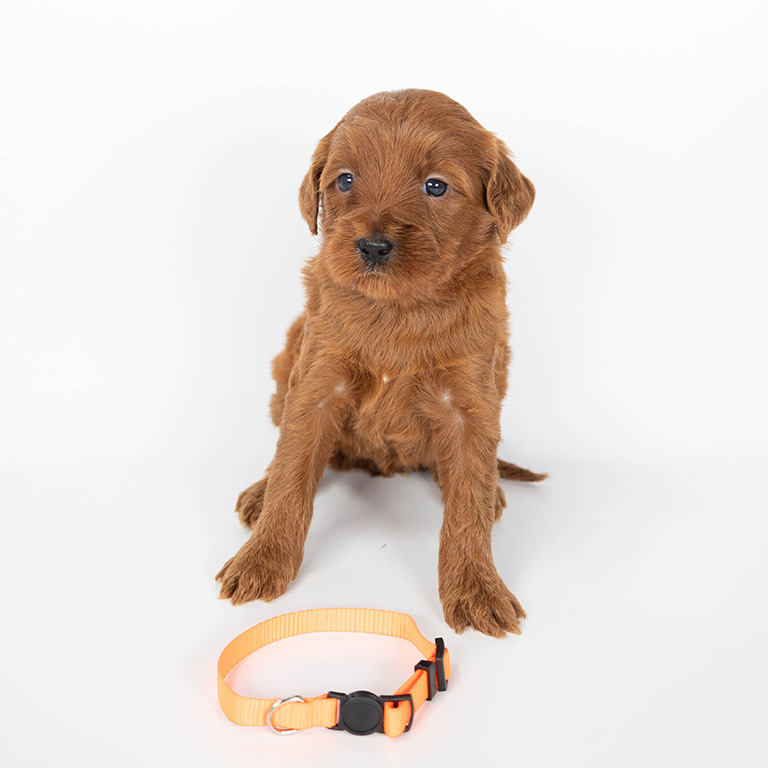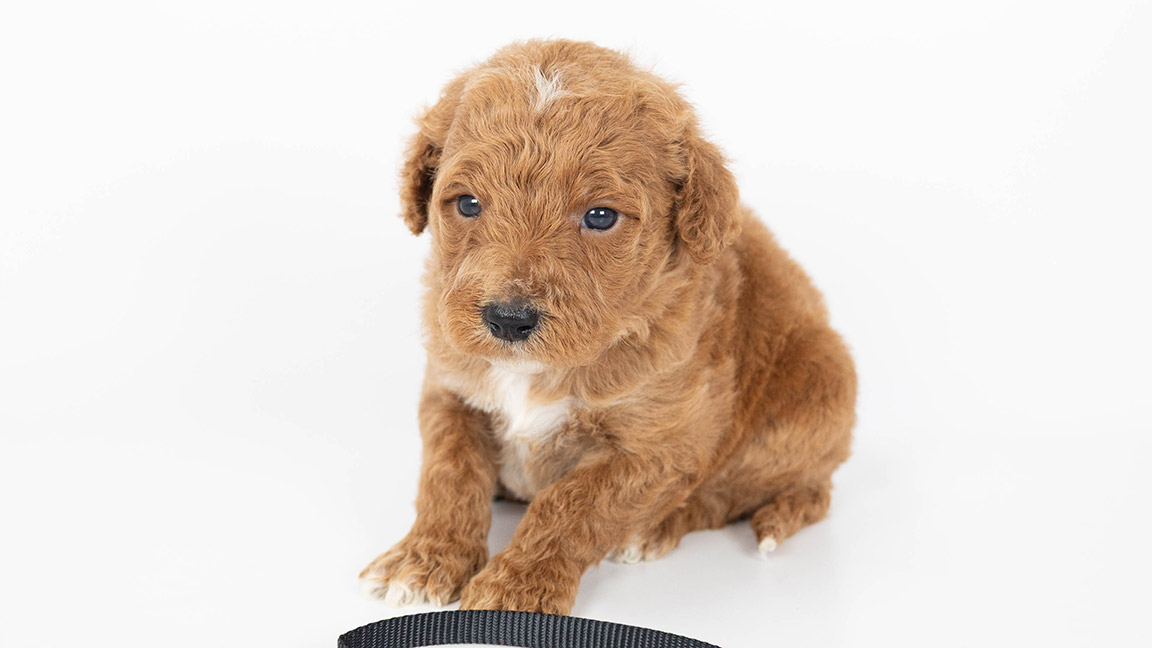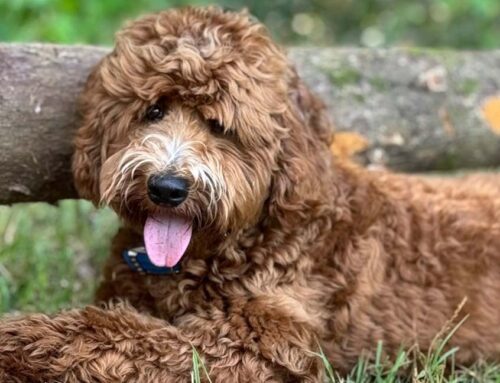Dental Care for Doodles: Best Practices for Every Dog Owner
Dental Care for Doodles: Best Practices for Every Dog Owner
A healthy smile is about more than just good looks, it’s a vital part of your Doodle’s overall health. Whether you have a Bernedoodle, Sheepadoodle, or Mini Doodle, proper dental care helps prevent discomfort, disease, and even serious long-term health problems.
At Double U Doodles, we believe every family deserves the tools and knowledge to keep their puppy thriving. That’s why we emphasize both wellness education and responsible breeding. This complete guide covers everything you need to know about dental care for dogs, from daily brushing to professional cleanings, with insights backed by veterinary science and real-world experience.
Why Dental Care Matters More Than You Think
According to the American Veterinary Medical Association (AVMA), over 80% of dogs exhibit signs of dental disease by the age of three. The condition, known as periodontal disease, begins when bacteria and plaque accumulate on the teeth and gums.
Over time, that sticky plaque hardens into tartar, irritating the gums and creating pockets where bacteria can thrive. This leads to inflammation, tooth decay, and pain, and in advanced cases, bacteria can enter the bloodstream and damage internal organs, such as the heart and kidneys.
Doodles, with their Poodle heritage, often have smaller, tightly spaced teeth. This makes them slightly more prone to plaque buildup, so consistent home care and routine veterinary checkups are essential.
Signs of Dental Problems in Doodles
 Dogs can’t tell us when they’re in pain, but their behavior often gives clues. Watch for:
Dogs can’t tell us when they’re in pain, but their behavior often gives clues. Watch for:
- Persistent bad breath
- Red or swollen gums
- Yellow or brown buildup on teeth
- Drooling or pawing at the mouth
- Bleeding when chewing or brushing
- Reluctance to eat or play with toys
Recent research supports the connection between dental disease and more widespread health problems. In one study published in the Journal of the American Veterinary Medical Association, the severity of periodontal disease in dogs was associated with systemic health indicators such as elevated globulin concentrations and inflammatory markers.
Step-by-Step Guide to Doodle Dental Care
1. Start Early and Make It Positive

The best time to start brushing your Doodle’s teeth is during puppyhood. At Double U Doodles, we gently handle each puppy’s mouth during our Checkpoint Puppy Program, which helps them grow comfortable with dental care from the start.
To introduce brushing:
- Begin by touching your puppy’s mouth and lifting their lips gently.
- Let them sniff and lick the toothbrush or finger brush.
- Reward calm behavior with praise or small training treats.
- Brush just a few teeth at first, adding more each session.
This slow, reward-based approach builds trust and helps your dog associate brushing with positive experiences.
2. Choose the Right Tools
Use a soft-bristled dog toothbrush or a finger brush for smaller dogs. For toothpaste, choose one specifically made for dogs, never use human toothpaste, as it may contain fluoride or xylitol, both of which are toxic to pets.
Dog-safe toothpaste comes in tasty flavors like poultry or peanut butter, turning brushing into a bonding experience rather than a chore.
3. Brush Regularly
Ideally, your Doodle’s teeth should be brushed daily. If that’s not possible, aim for at least three to four times per week. Focus on the outer surfaces of the teeth and use gentle circular motions.
4. Add Dental Chews and Toys
Chewing is a natural way for dogs to keep their teeth clean. The mechanical motion helps scrape away plaque and stimulates saliva, which reduces bacterial buildup.
Look for VOHC-approved dental chews (products certified by the Veterinary Oral Health Council). These have been scientifically tested to reduce plaque and tartar.
Rotate between dental chews, rope toys, and rubber dental toys to keep your dog engaged and ensure a variety of cleaning benefits.
5. Provide a Balanced Diet
Nutrition plays a big role in dental health. Dry kibble can help reduce plaque buildup compared to wet food, but the quality of ingredients matters most. Foods rich in vitamins, minerals, and omega fatty acids support gum and tooth strength.
Avoid sticky or sugary treats that can cling to teeth and feed bacteria. You can also incorporate natural crunchy snacks like baby carrots or apple slices (in moderation) for additional dental benefits.
6. Schedule Professional Cleanings

Even the most diligent brushing routine can’t reach every area. Professional cleanings performed by your veterinarian are essential for maintaining oral health.
During a cleaning, your vet will:
- Examine the mouth for disease or infection
- Remove plaque and tartar above and below the gumline
- Take dental X-rays if needed
- Polish teeth to smooth enamel and reduce future buildup
Most dogs benefit from a professional dental cleaning once a year; however, smaller breeds and Doodles with compact teeth may require them every six to nine months.
The AAHA Dental Care Guidelines recommend anesthesia-based cleanings for thorough results and to prevent stress or pain during the procedure. Non-anesthetic cleanings only remove visible plaque and do not address issues below the gumline.
7. Monitor at Home
Between vet visits, check your Doodle’s mouth weekly. Lift the lips and look for redness, swelling, or discolored buildup. This quick habit takes seconds but helps you catch early signs of trouble before they become serious.
If you notice bad breath, bleeding, or any change in eating habits, contact your vet promptly. Early intervention can prevent tooth loss and infections.
Making Dental Care Fun
Doodles are intelligent and eager to please, making them excellent candidates for at-home care routines. The key is to keep sessions short and positive.
Try these tips:
- Brush after playtime, when your dog is relaxed.
- Use cheerful verbal cues like “smile time!” or “clean teeth!”
- Follow each session with a treat, play, or cuddle.
- Be consistent; a little effort every day builds lifelong habits.
For puppies, brushing can also double as a gentle desensitization exercise. Gently touching their muzzle, teeth, and gums prepares them for future grooming, veterinary visits, and overall handling.
The Cost of Neglecting Dental Health
Skipping dental care doesn’t just lead to bad breath; it can also shorten your dog’s life. Chronic oral infections release bacteria into the bloodstream, which can affect organs such as the liver, kidneys, and heart.

When to See a Veterinarian
Schedule an appointment if your Doodle shows any of these signs:
- Persistent bad breath despite brushing
- Red, swollen, or bleeding gums
- Difficulty chewing or dropping food
- Loose or missing teeth
- Swelling around the face or mouth
Never attempt to remove tartar or loose teeth at home. Your veterinarian has the tools and expertise to treat these safely.
The Double U Doodles Approach
At Double U Doodles, we focus on total wellness, not just appearances. Our puppies are raised to be healthy, confident, and comfortable with grooming and handling, including dental care.
We provide families with resources and personalized guidance to help them maintain long-term health. From our Checkpoint Puppy Program to our follow-up support, we make sure each family has the tools they need to care for their Doodle’s smile for years to come.
If you’d like to keep learning about your Doodle’s health, training, and wellness, visit the Double U Doodles blog for more expert-backed tips from our breeder team.
FAQ
How often should I brush my Doodle’s teeth?
Daily brushing is best, but even three times per week can significantly reduce plaque and tartar buildup.
Are dental chews enough to replace brushing?
No. Dental chews are helpful but should complement, not replace, regular brushing and veterinary care.
Do puppies need dental care?
Yes. Start as soon as possible to build comfort and prevent issues during the teething stage.
Are professional cleanings safe?
Yes. Veterinary anesthesia today is considered very safe, especially when performed by trained professionals under monitoring.
Can diet really help prevent dental disease?
Yes. Crunchy foods and balanced nutrition support oral health, while high-sugar or soft foods increase risk.





